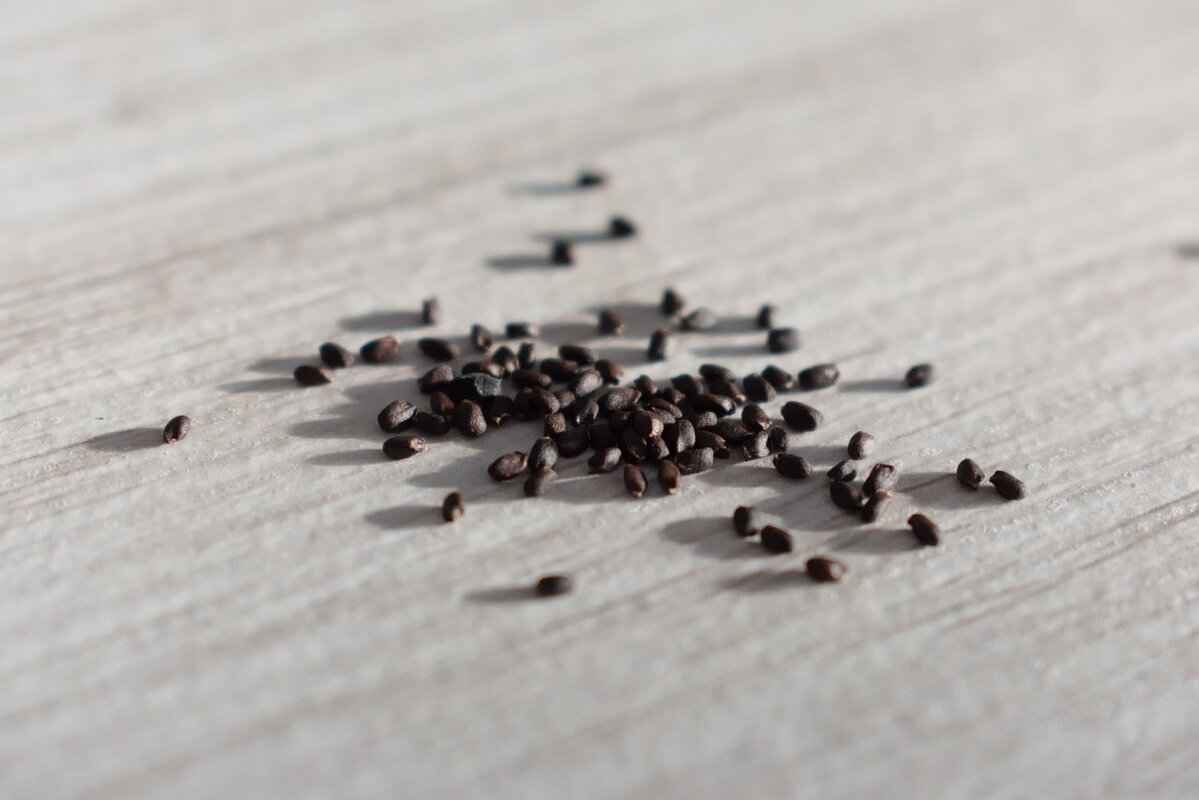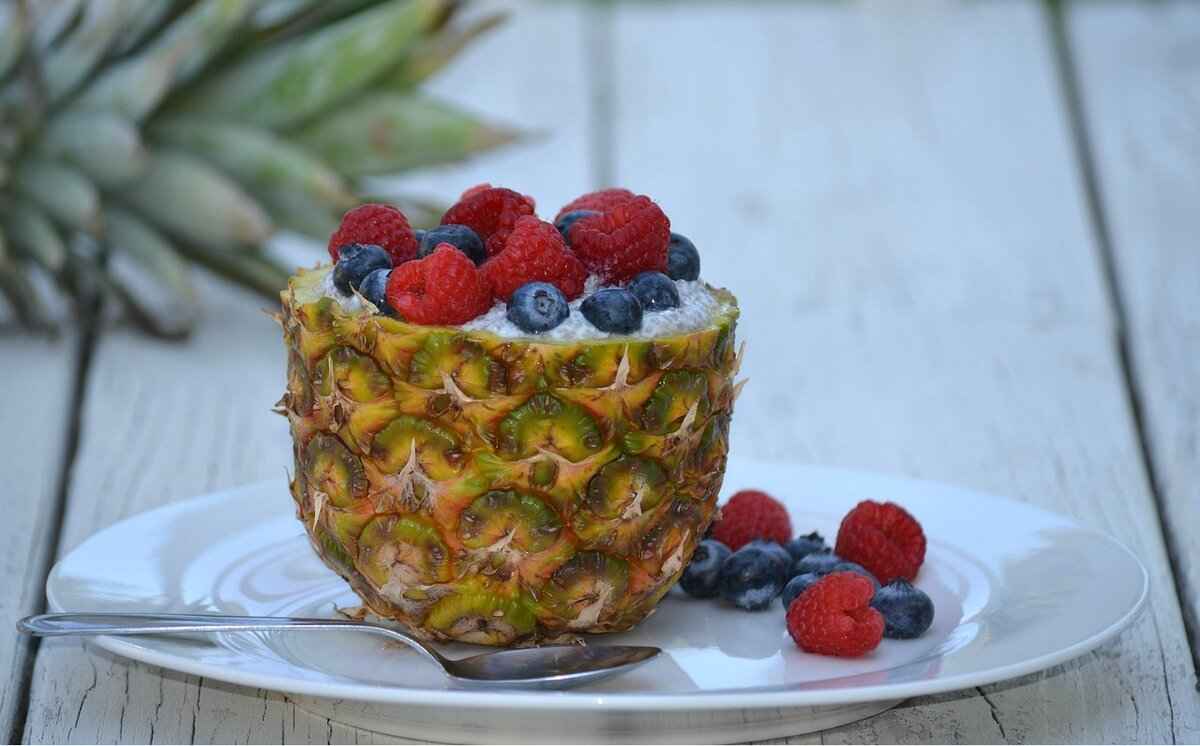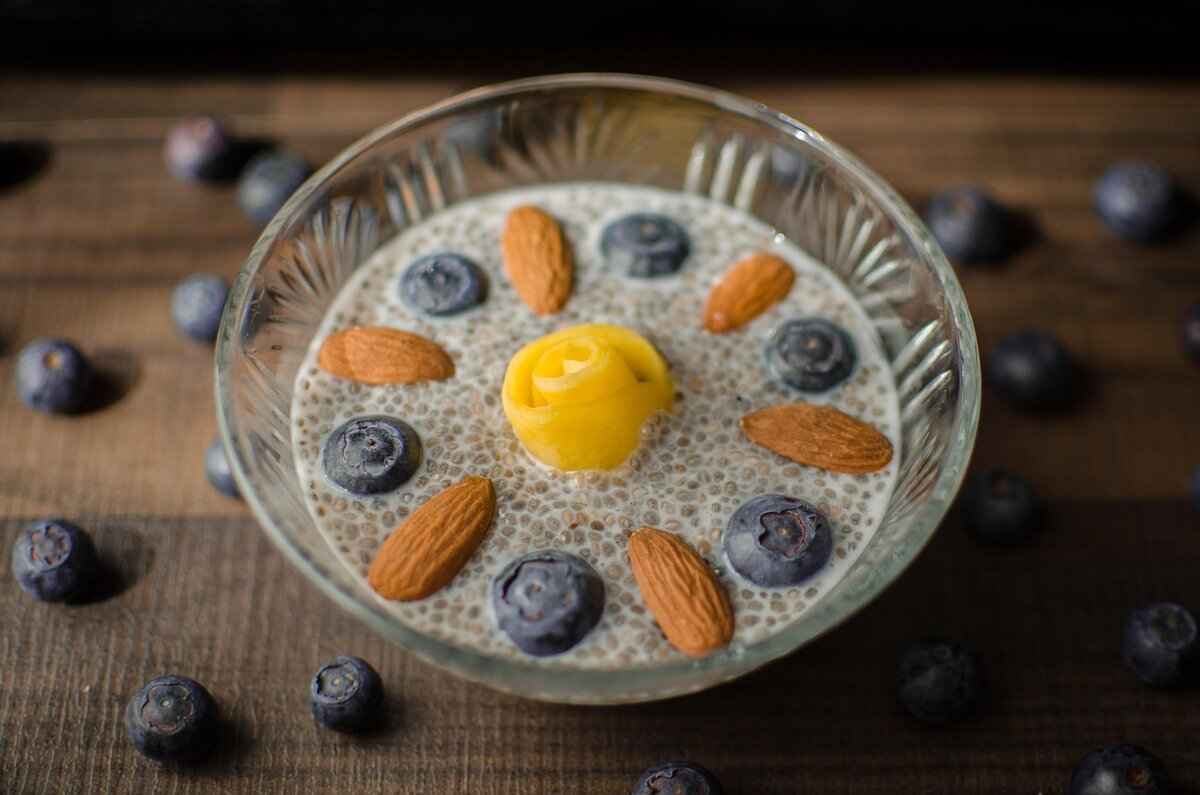Chia seeds, often hailed as a superfood, have gained popularity for their numerous health benefits. These tiny seeds, derived from the Salvia hispanica plant, are packed with essential nutrients that can significantly enhance your overall wellness. In this article, we will delve into the nutritional profile of chia seeds, their potential health benefits, and practical ways to incorporate them into your daily diet.
Chia seeds are incredibly nutrient-dense, making them a valuable addition to any diet. They are an excellent source of omega-3 fatty acids, fiber, protein, and a variety of vitamins and minerals. Specifically, a single ounce (28 grams) of chia seeds contains:
- 11 grams of fiber
- 4 grams of protein
- 5 grams of omega-3 fatty acids
- Calcium, magnesium, and iron
Research suggests that chia seeds may promote heart health by reducing inflammation, lowering cholesterol levels, and supporting healthy blood pressure. The high content of omega-3 fatty acids plays a crucial role in these benefits.
The omega-3 fatty acids found in chia seeds help reduce triglycerides and improve overall cholesterol levels, contributing to a lower risk of cardiovascular diseases. Incorporating chia seeds into your diet can be a simple yet effective strategy for maintaining heart health.
Regular consumption of chia seeds may assist in maintaining healthy blood pressure levels, primarily due to their high fiber content and beneficial fatty acids that support vascular health. This makes them an excellent choice for those looking to improve their cardiovascular health.
Chia seeds can be beneficial for weight management by promoting satiety and reducing overall calorie intake. Their unique ability to absorb water allows them to expand in the stomach, creating a feeling of fullness.
When consumed, chia seeds swell in the stomach, helping to curb hunger and reduce the likelihood of overeating. This makes them a valuable tool for anyone looking to lose weight or maintain a healthy weight.
The high fiber content of chia seeds not only aids digestion but also contributes to weight loss by regulating appetite and stabilizing blood sugar levels. This helps prevent spikes that lead to cravings, making chia seeds an excellent addition to a weight loss diet.
Chia seeds are rich in soluble fiber, which can enhance digestive health by promoting regular bowel movements and fostering a healthy gut microbiome. This can lead to improved overall digestive function.
Soluble fiber in chia seeds helps to feed beneficial gut bacteria, improving gut health and digestive function. This can prevent constipation and promote regularity, making chia seeds a great choice for digestive wellness.
While generally safe, excessive consumption of chia seeds can lead to gastrointestinal discomfort. It’s important to consume them in moderation and ensure adequate hydration to maximize their health benefits.
Chia seeds are versatile and can be easily added to various dishes, from smoothies and salads to baked goods, enhancing their nutritional value. Here are some popular ways to incorporate chia seeds into your meals:
- Add to smoothies for a nutrient boost
- Mix into yogurt or oatmeal
- Use in baking recipes, such as muffins or bread
Popular recipes include chia pudding, smoothies, and energy bars. These recipes showcase the seeds’ versatility and can cater to various dietary preferences and needs.
Soaking chia seeds in water or milk before consumption can enhance their digestibility and nutrient absorption, making them a more effective addition to your meals. This simple preparation method can help you reap the maximum benefits from these tiny seeds.

What Nutrients Are Found in Chia Seeds?
Chia seeds have gained immense popularity in recent years, and for good reason. These tiny seeds are not only versatile but also incredibly nutrient-dense, making them a valuable addition to any diet. In this section, we will delve into the various nutrients found in chia seeds and explore how they contribute to overall health and well-being.
Chia seeds are packed with a wide range of essential vitamins and minerals that play crucial roles in maintaining health. Notably, they are an excellent source of:
- Omega-3 Fatty Acids: Chia seeds are one of the richest plant-based sources of omega-3 fatty acids, specifically alpha-linolenic acid (ALA). These healthy fats are vital for heart health and inflammation reduction.
- Fiber: With about 10 grams of fiber per ounce, chia seeds are a fantastic source of dietary fiber. This high fiber content aids in digestion, promotes satiety, and helps regulate blood sugar levels.
- Protein: Chia seeds contain approximately 4 grams of protein per ounce, making them a good plant-based protein source. They provide essential amino acids necessary for muscle repair and overall body function.
- Antioxidants: Rich in antioxidants, chia seeds help combat oxidative stress in the body. These compounds protect cells from damage and may reduce the risk of chronic diseases.
- Vitamins and Minerals: Chia seeds are a good source of several important vitamins and minerals, including calcium, magnesium, phosphorus, and manganese, which are essential for bone health and metabolic functions.
The unique combination of nutrients in chia seeds contributes to a variety of health benefits:
- Heart Health: The omega-3 fatty acids in chia seeds support cardiovascular health by reducing inflammation and improving cholesterol levels.
- Digestive Health: The high fiber content promotes regular bowel movements and aids in maintaining a healthy gut microbiome.
- Weight Management: Chia seeds can help control appetite and reduce overall calorie intake, making them a useful tool for those looking to manage their weight.
- Bone Health: The calcium and magnesium content in chia seeds supports bone density and overall skeletal health.
Adding chia seeds to your diet is simple and can be done in various ways:
- Smoothies: Blend chia seeds into your smoothies for an added nutritional boost.
- Chia Pudding: Soak chia seeds in milk or a dairy-free alternative overnight to create a delicious and nutritious pudding.
- Baked Goods: Incorporate chia seeds into muffins, bread, or energy bars for added texture and nutrition.
- Salads: Sprinkle chia seeds on salads for an extra crunch and nutrient boost.
In conclusion, chia seeds are a powerhouse of nutrients that can significantly enhance your overall health. Their versatility allows for easy incorporation into a wide range of dishes, making them an excellent choice for anyone looking to improve their diet.

How Do Chia Seeds Benefit Heart Health?
Chia seeds have garnered significant attention in the health and wellness community, particularly for their potential benefits to heart health. With a rich nutritional profile, these tiny seeds pack a powerful punch when it comes to supporting cardiovascular well-being.
Research indicates that chia seeds can promote heart health by reducing inflammation, lowering cholesterol levels, and supporting healthy blood pressure. This is largely attributed to their high content of omega-3 fatty acids, which play a crucial role in maintaining cardiovascular function.
Omega-3 fatty acids are essential fats that the body cannot produce on its own. Chia seeds are an excellent source of alpha-linolenic acid (ALA), a type of omega-3 fatty acid. Consuming ALA has been shown to help reduce triglycerides, lower blood pressure, and improve overall cholesterol levels. This contributes to a lower risk of cardiovascular diseases, making chia seeds an important addition to a heart-healthy diet.
Regular consumption of chia seeds may assist in maintaining healthy blood pressure levels. The high fiber content in chia seeds plays a vital role in this process. Fiber helps to improve blood vessel function and reduces the risk of hypertension. Additionally, the presence of beneficial fatty acids further supports vascular health, creating a synergistic effect that enhances heart health.
Chronic inflammation is a significant risk factor for heart disease. Chia seeds contain a variety of antioxidants, including polyphenols, which help combat oxidative stress and inflammation in the body. By incorporating chia seeds into your diet, you may experience a reduction in inflammatory markers, contributing to overall heart health.
Incorporating chia seeds into your diet is easy and versatile. They can be added to smoothies, yogurt, or salads, or used as an egg substitute in baking. When mixed with liquid, chia seeds absorb water and form a gel-like consistency, making them perfect for chia pudding or as a thickening agent in soups and sauces.
- Chia Pudding: Combine chia seeds with almond milk, vanilla extract, and a sweetener of your choice. Let it sit overnight for a delicious breakfast.
- Chia Smoothies: Blend chia seeds with your favorite fruits and vegetables for a nutrient-packed drink.
- Energy Bars: Mix chia seeds with oats, nut butter, and honey to create homemade energy bars.
Soaking chia seeds in water or milk before consumption can enhance their digestibility and nutrient absorption. This method not only makes them easier to consume but also maximizes their health benefits. Aim to soak them for at least 30 minutes or overnight for optimal results.
In conclusion, chia seeds are a powerhouse of nutrition that can significantly contribute to heart health. Their high omega-3 fatty acid content, combined with fiber and antioxidants, makes them a valuable addition to any diet focused on maintaining cardiovascular well-being. By incorporating chia seeds into your meals, you can take a proactive step towards a healthier heart.
What Role Do Omega-3 Fatty Acids Play?
Omega-3 fatty acids are essential fats that our bodies cannot produce on their own, making it crucial to obtain them through our diet. One of the richest plant-based sources of these beneficial fats is chia seeds. These tiny seeds are not just a trendy superfood; they are packed with nutrients that can significantly contribute to overall health, particularly heart health.
Research has shown that the omega-3 fatty acids found in chia seeds, specifically alpha-linolenic acid (ALA), play a vital role in maintaining a healthy cardiovascular system. They help to reduce triglyceride levels, which are fats found in the blood that, when elevated, can increase the risk of heart disease. By lowering triglycerides, chia seeds can help improve overall cholesterol levels, promoting a healthier lipid profile.
Moreover, omega-3 fatty acids are known for their anti-inflammatory properties. Chronic inflammation is a significant risk factor for various cardiovascular diseases. By incorporating chia seeds into your diet, you may help to reduce inflammation, thus contributing to better heart health. This is particularly important for individuals with existing heart conditions or those at risk of developing them.
In addition to their cholesterol-lowering effects, omega-3 fatty acids also support healthy blood pressure levels. Studies suggest that diets rich in omega-3s can help maintain optimal blood pressure, reducing the strain on the heart and arteries. This can be especially beneficial for individuals struggling with hypertension.
Another aspect of omega-3 fatty acids in chia seeds is their role in improving endothelial function. The endothelium is the thin layer of cells lining the blood vessels, and its health is crucial for maintaining proper blood flow and preventing atherosclerosis (hardening of the arteries). Omega-3s can enhance endothelial function, leading to improved circulation and overall heart health.
Incorporating chia seeds into your diet is simple and versatile. They can be added to smoothies, oatmeal, or yogurt, or used as an egg substitute in vegan baking. When soaked in liquid, chia seeds expand and form a gel-like consistency, making them perfect for puddings and as thickening agents in various recipes.
It is important to note that while chia seeds are a fantastic source of omega-3 fatty acids, they should be part of a balanced diet that includes a variety of other nutrient-dense foods. Additionally, individuals who are on blood-thinning medications should consult with their healthcare provider before significantly increasing their omega-3 intake, as these fats can enhance the effects of such medications.
In summary, the omega-3 fatty acids found in chia seeds play a crucial role in promoting heart health by reducing triglycerides, lowering cholesterol levels, and improving overall cardiovascular function. By incorporating chia seeds into your daily diet, you can take a proactive step towards better heart health and overall well-being.
Can Chia Seeds Help Regulate Blood Pressure?
Chia seeds, often hailed as a superfood, are tiny yet mighty seeds that pack a powerful nutritional punch. One of the key health benefits attributed to these seeds is their potential role in regulating blood pressure. In this section, we will delve deeper into how chia seeds can contribute to maintaining healthy blood pressure levels, supported by their unique nutritional profile.
Blood pressure is the force exerted by circulating blood on the walls of blood vessels. Maintaining healthy blood pressure levels is crucial for overall health, as high blood pressure can lead to serious conditions such as heart disease, stroke, and kidney failure. Therefore, finding natural ways to manage blood pressure is essential for many individuals.
Regular consumption of chia seeds may assist in maintaining healthy blood pressure levels, primarily due to their high fiber content and beneficial fatty acids that support vascular health. The soluble fiber found in chia seeds plays a significant role in this process.
- High Fiber Content: Chia seeds are packed with fiber, which can help regulate blood pressure by improving overall heart health. Fiber aids in lowering cholesterol levels, which is vital for maintaining healthy blood vessels.
- Omega-3 Fatty Acids: These seeds are also an excellent source of omega-3 fatty acids, which are known for their anti-inflammatory properties. Omega-3s help reduce inflammation in the body, a known contributor to high blood pressure.
- Antioxidants: Chia seeds are rich in antioxidants, which help combat oxidative stress and inflammation, both of which can negatively impact blood pressure levels.
Several studies have investigated the effects of chia seeds on blood pressure. One study found that participants who included chia seeds in their diet experienced a significant reduction in both systolic and diastolic blood pressure. This reduction can be attributed to the seeds’ ability to improve endothelial function and enhance blood vessel flexibility.
Incorporating chia seeds into your diet is easy and can be done in various ways:
- Add them to smoothies for a nutrient boost.
- Mix chia seeds into yogurt or oatmeal for added texture and health benefits.
- Use them as an egg substitute in baking by mixing chia seeds with water.
- Prepare chia pudding by soaking them in milk or a milk alternative overnight.
While chia seeds are generally safe for most people, it is essential to consume them in moderation. Due to their high fiber content, excessive intake can lead to gastrointestinal discomfort. Additionally, it is crucial to drink plenty of water when consuming chia seeds to aid digestion and prevent any potential digestive issues.
In conclusion, chia seeds offer a wealth of health benefits, particularly for those looking to regulate their blood pressure. With their high fiber content, omega-3 fatty acids, and antioxidant properties, they can be a valuable addition to a heart-healthy diet. By incorporating chia seeds into your meals, you can take a proactive step towards maintaining optimal blood pressure levels.

Are Chia Seeds Effective for Weight Management?
Chia seeds have gained popularity as a superfood in recent years, particularly for those looking to manage their weight. This tiny seed packs a powerful punch when it comes to satiety and overall calorie control. Their remarkable ability to absorb water and expand in the stomach plays a crucial role in helping individuals feel full longer, thereby reducing the temptation to overeat.
How Do Chia Seeds Promote Fullness?
When chia seeds are consumed, they can absorb up to 10-12 times their weight in water. This expansion in the stomach creates a gel-like substance that occupies space, leading to a sensation of fullness. This physiological response can significantly curb hunger pangs, making it easier to stick to a calorie-controlled diet and avoid unnecessary snacking. Studies have shown that incorporating chia seeds into meals can lead to lower overall calorie intake, which is essential for weight management.
What Role Does Fiber Play in Weight Loss?
Chia seeds are an excellent source of dietary fiber, with about 11 grams of fiber per ounce. This high fiber content not only helps with digestion but also plays a significant role in weight loss. Fiber slows down the digestion process, which helps stabilize blood sugar levels and prevents sudden spikes that can lead to cravings. By promoting a steady release of energy, chia seeds can help maintain a balanced appetite throughout the day.
Can Chia Seeds Help Control Cravings?
In addition to promoting fullness, the soluble fiber in chia seeds can help control cravings. The gel-like consistency they form in the stomach slows gastric emptying, which means that food stays in the stomach longer, leading to prolonged satisfaction. This can be particularly beneficial for individuals trying to resist unhealthy snacks between meals.
How to Incorporate Chia Seeds into Your Diet?
- Chia Pudding: Mix chia seeds with your choice of milk or yogurt and let them sit overnight. Add fruits and nuts for a nutritious breakfast.
- Smoothies: Blend chia seeds into your favorite smoothie for an added boost of fiber and omega-3 fatty acids.
- Baked Goods: Incorporate chia seeds into muffins, breads, or energy bars for a healthy twist.
What Are the Recommended Serving Sizes?
While chia seeds are beneficial, moderation is key. A typical serving size is about 1-2 tablespoons per day. This amount provides the necessary fiber and nutrients without the risk of gastrointestinal discomfort, which can occur with excessive consumption.
Are There Any Risks to Consider?
Although chia seeds are generally safe for most people, it’s important to be mindful of individual dietary needs. Some may experience digestive issues if they consume too many seeds without adequate hydration. To mitigate this, always drink plenty of water when incorporating chia seeds into your diet.
In summary, chia seeds can be a valuable ally in weight management due to their unique properties that promote satiety and regulate appetite. By adding these tiny seeds to your meals, you can enhance your dietary routine while supporting your weight loss goals.
How Do Chia Seeds Increase Satiety?
Chia seeds have gained popularity in recent years, especially among those looking to manage their weight. One of the most remarkable properties of these tiny seeds is their ability to increase satiety, which can play a crucial role in weight management. Understanding how chia seeds work in this regard can help you incorporate them effectively into your diet.
Chia seeds are known for their unique ability to absorb liquid. When they come into contact with water, they can swell up to 12 times their original size. This characteristic is primarily due to their high soluble fiber content, which forms a gel-like substance when hydrated. This gel not only helps to keep you feeling full but also aids in slowing down the digestion process.
When consumed, chia seeds expand in the stomach, creating a sensation of fullness that can significantly curb hunger. This mechanism of action is particularly beneficial for those who struggle with overeating or snacking between meals. By incorporating chia seeds into your meals, you can effectively reduce your overall calorie intake without feeling deprived.
The high fiber content in chia seeds is a key factor in promoting satiety. Fiber is known to take longer to digest, which helps to prolong the feeling of fullness after a meal. Additionally, fiber can help stabilize blood sugar levels, preventing the spikes and crashes that often lead to cravings. By consuming chia seeds, you can enjoy the benefits of fiber while also enhancing your meals’ nutritional value.
- Add to Smoothies: Blend chia seeds into your morning smoothie for an added boost of fiber and protein.
- Make Chia Pudding: Soak chia seeds in almond milk or yogurt overnight to create a delicious and filling pudding.
- Sprinkle on Salads: Add chia seeds to your salads for a crunchy texture and enhanced satiety.
Combining chia seeds with other nutrient-dense foods can further enhance their satiating effects. For instance, pairing chia seeds with healthy fats like nuts or avocados can provide a balanced meal that keeps you full for longer. Additionally, incorporating protein-rich foods such as Greek yogurt or cottage cheese can also help in managing hunger levels effectively.
While chia seeds are generally safe for most people, it’s essential to consume them in moderation. Overconsumption can lead to gastrointestinal discomfort due to their high fiber content. To avoid any adverse effects, start with a small amount and gradually increase your intake. Also, ensure you drink plenty of water, as chia seeds absorb liquid and can lead to dehydration if consumed without adequate hydration.
In summary, chia seeds are an excellent tool for increasing satiety and managing hunger. Their unique ability to swell in the stomach, combined with their high fiber content, makes them a valuable addition to any weight management plan. By incorporating chia seeds into your diet in various ways, you can enjoy their benefits while also enhancing your overall nutritional intake.
What is the Role of Fiber in Weight Loss?
The importance of fiber in our diet cannot be overstated, especially when it comes to weight loss and overall health. Chia seeds, in particular, are an excellent source of dietary fiber, providing a multitude of benefits that can significantly aid those looking to manage their weight. By understanding how fiber works in the body, we can better appreciate its role in weight management.
How Does Fiber Promote Weight Loss?
- Appetite Regulation: Fiber-rich foods like chia seeds help regulate appetite by promoting a feeling of fullness. When consumed, chia seeds absorb water and expand in the stomach, creating a gel-like substance that increases satiety. This sensation helps curb hunger, leading to reduced calorie intake throughout the day.
- Blood Sugar Stabilization: High fiber content can stabilize blood sugar levels, preventing spikes that often lead to cravings. By slowing down the digestion process, fiber helps maintain steady energy levels, reducing the likelihood of reaching for unhealthy snacks.
- Improved Digestion: Fiber aids in digestion by promoting regular bowel movements and preventing constipation. A healthy digestive system is crucial for effective weight management, as it ensures that nutrients are properly absorbed and waste is efficiently eliminated.
What Types of Fiber Are Found in Chia Seeds?
Chia seeds primarily contain soluble fiber, which dissolves in water and forms a gel-like substance in the gut. This type of fiber is particularly beneficial for weight loss because it:
- Helps control hunger by slowing the rate of gastric emptying.
- Supports a healthy gut microbiome, which plays a role in metabolism and weight regulation.
How Much Fiber Do You Need?
The recommended daily intake of fiber varies by age and gender, but generally, adults should aim for about 25 to 30 grams per day. Incorporating chia seeds into your diet can significantly contribute to this goal, as just two tablespoons of chia seeds provide approximately 10 grams of fiber.
How to Incorporate Chia Seeds into Your Diet?
Integrating chia seeds into your meals is simple and versatile. Here are some practical ways to include them:
- Chia Pudding: Soak chia seeds in milk or a dairy-free alternative overnight, and add your favorite fruits and nuts for a nutritious breakfast or snack.
- Smoothies: Blend chia seeds into your morning smoothie for an extra fiber boost.
- Baked Goods: Add chia seeds to muffins, bread, or pancakes to enhance their nutritional profile.
Are There Any Risks in Consuming Too Much Fiber?
While fiber is essential for health, excessive intake can lead to gastrointestinal discomfort, such as bloating or gas. It’s crucial to increase fiber consumption gradually and drink plenty of water to help manage these effects. Moderation is key, and it’s advisable to consult with a healthcare provider if you have specific dietary concerns.
In summary, the role of fiber, particularly from sources like chia seeds, is vital in supporting weight loss efforts. By promoting satiety, stabilizing blood sugar levels, and improving digestion, fiber serves as a powerful ally in achieving and maintaining a healthy weight.

Can Chia Seeds Improve Digestive Health?
Chia seeds have gained popularity in recent years, not only for their versatility in culinary applications but also for their impressive health benefits. Among these benefits, the potential for improving digestive health stands out. In this section, we will explore how chia seeds can significantly enhance your digestive system, focusing on their soluble fiber content and its effects on gut health.
Chia seeds are rich in soluble fiber, which plays a crucial role in maintaining a healthy digestive system. Soluble fiber absorbs water and forms a gel-like substance in the gut, which can help to promote regular bowel movements. This characteristic is essential for preventing constipation and ensuring that food moves smoothly through the digestive tract.
The soluble fiber found in chia seeds acts as a prebiotic, feeding the beneficial bacteria in your gut. A healthy gut microbiome is vital for overall health, as it aids in digestion, boosts the immune system, and even influences mood and mental health. By incorporating chia seeds into your diet, you can foster a thriving community of gut bacteria, which in turn can enhance your digestive health.
Regular consumption of chia seeds may help in preventing digestive disorders such as irritable bowel syndrome (IBS) and diverticulitis. The fiber in chia seeds not only promotes regularity but also reduces inflammation in the gut. Lower inflammation can lead to fewer flare-ups of digestive issues, making chia seeds an excellent addition to the diet for those prone to such conditions.
While many foods are rich in fiber, chia seeds stand out due to their unique nutritional profile. For instance, they contain more fiber per ounce than many other common sources, such as oats and flaxseeds. This makes them a potent option for individuals looking to increase their fiber intake without consuming large quantities of food.
For optimal digestive health, it is recommended to consume about 1 to 2 tablespoons of chia seeds daily. This amount provides sufficient soluble fiber to support digestive function without overwhelming the system. It is important to drink plenty of water when consuming chia seeds, as their high fiber content can absorb liquid and expand in the stomach.
- Chia Pudding: Mix chia seeds with almond milk or yogurt and let them soak overnight for a delicious breakfast.
- Smoothies: Add chia seeds to your favorite smoothie for an extra nutrient boost.
- Baked Goods: Incorporate chia seeds into muffins, bread, or energy bars for added fiber.
While chia seeds are generally safe for most people, consuming them in excessive amounts can lead to gastrointestinal discomfort, such as bloating or gas. It’s crucial to introduce them gradually into your diet and maintain adequate hydration to avoid any digestive issues.
In summary, chia seeds are a fantastic addition to your diet if you’re looking to enhance your digestive health. Their high soluble fiber content not only promotes regular bowel movements but also supports a healthy gut microbiome. By incorporating chia seeds into your daily meals, you can take a significant step toward improved digestive wellness.
How Does Fiber Affect Gut Health?
Fiber plays a crucial role in maintaining a healthy digestive system. Among the various types of fiber, soluble fiber found in chia seeds is particularly beneficial. This type of fiber dissolves in water, forming a gel-like substance that can help regulate digestion and promote gut health.
One of the primary benefits of soluble fiber is its ability to nourish beneficial gut bacteria. These bacteria, also known as probiotics, are essential for a healthy gut microbiome. When you consume soluble fiber, it acts as a food source for these beneficial bacteria, allowing them to thrive and multiply. This, in turn, contributes to improved digestive function and overall gut health.
Moreover, a well-balanced gut microbiome is linked to numerous health benefits, including enhanced immune function, reduced inflammation, and even improved mental health. By consuming chia seeds, you are not only providing your body with essential nutrients but also fostering a diverse and resilient gut environment.
In addition to supporting beneficial bacteria, soluble fiber also plays a significant role in preventing constipation. By absorbing water and forming a gel-like mass, soluble fiber helps to soften stool and promote regular bowel movements. This is particularly important for individuals who may experience digestive issues or irregularity. Regular consumption of chia seeds can help maintain a healthy digestive rhythm, making them a valuable addition to the diet.
Furthermore, soluble fiber aids in regulating blood sugar levels. When consumed, it slows down the absorption of sugar in the bloodstream, preventing spikes and crashes that can lead to cravings and overeating. This characteristic not only supports digestive health but also contributes to weight management and overall metabolic health.
For those looking to improve their gut health, incorporating chia seeds into your diet can be a simple yet effective strategy. They can be easily added to smoothies, oatmeal, yogurt, or even baked goods. The seeds can absorb liquid and expand, making them a versatile ingredient that enhances the texture and nutritional profile of various dishes.
It’s important to note that while chia seeds are generally safe for most individuals, moderation is key. Excessive consumption may lead to gastrointestinal discomfort, especially if not accompanied by adequate hydration. Therefore, it’s advisable to start with a small amount and gradually increase your intake, ensuring you drink plenty of water throughout the day.
In summary, the soluble fiber in chia seeds offers a multitude of benefits for gut health. From feeding beneficial bacteria and promoting regular bowel movements to regulating blood sugar levels, chia seeds are a powerhouse of nutrition that can significantly enhance digestive function. By incorporating these tiny seeds into your daily diet, you can support your gut health and overall well-being.
Are There Any Risks Associated with Chia Seed Consumption?
Chia seeds have gained immense popularity in recent years, celebrated for their numerous health benefits and versatility in various dishes. However, like any food, they come with certain risks, particularly when consumed in excess. Understanding these risks is vital for anyone looking to incorporate chia seeds into their diet.
While chia seeds are generally safe for most people, excessive consumption can lead to gastrointestinal discomfort. This discomfort may manifest as bloating, gas, or even diarrhea. The primary reason for this is their high fiber content, which can overwhelm the digestive system when introduced too quickly or in large quantities.
To enjoy the benefits of chia seeds without the drawbacks, it is crucial to consume them in moderation. A typical serving size is about 1-2 tablespoons (15-30 grams) per day. Sticking to this amount can help minimize the risk of digestive issues while still providing the health benefits associated with chia seeds.
Another important consideration when consuming chia seeds is hydration. Chia seeds can absorb up to 12 times their weight in water, which is a significant factor in their ability to promote satiety. However, if not enough water is consumed alongside chia seeds, they can expand in the digestive tract, potentially leading to blockages or discomfort. Therefore, it is essential to drink plenty of fluids when incorporating chia seeds into your diet.
Though rare, some individuals may experience allergic reactions to chia seeds. Symptoms can range from mild to severe, including itching, swelling, or difficulty breathing. If you suspect an allergy, it is advisable to consult with a healthcare professional before including chia seeds in your diet.
Chia seeds may also interact with certain medications, especially those that affect blood sugar or blood pressure. Their high fiber content can influence the absorption of medications, potentially altering their effectiveness. If you are on medication, it is wise to consult with a healthcare provider to ensure that chia seeds won’t interfere with your treatment plan.
For individuals with pre-existing digestive conditions, such as irritable bowel syndrome (IBS)
In summary, while chia seeds offer numerous health benefits, it is essential to consume them responsibly. By understanding the potential risks and taking appropriate precautions, you can enjoy the nutritional advantages of chia seeds without experiencing adverse effects. Always remember to stay hydrated, eat them in moderation, and consult with a healthcare professional if you have any concerns.

How Can You Incorporate Chia Seeds into Your Diet?
Chia seeds are incredibly versatile and can be seamlessly integrated into a wide variety of meals. Their mild flavor and unique texture make them an ideal addition to both sweet and savory dishes. Below, we explore several practical and delicious ways to incorporate chia seeds into your daily diet.
- Smoothies: Add a tablespoon of chia seeds to your morning smoothie for an extra boost of nutrients. They blend well with fruits and vegetables, enhancing both the texture and nutritional profile.
- Salads: Sprinkle chia seeds on top of salads to add a delightful crunch. They can absorb dressing, enhancing flavor while providing healthy fats and fiber.
- Baked Goods: Incorporate chia seeds into your favorite baked recipes, such as muffins, bread, or pancakes. They not only improve the nutritional value but also add moisture and texture.
- Chia Pudding: Create a delicious chia pudding by mixing chia seeds with your choice of milk (dairy or plant-based) and letting it sit overnight. Add fruits, nuts, or a drizzle of honey for flavor.
- Soups and Stews: Stir chia seeds into soups or stews as a thickening agent. They can enhance the dish’s consistency while providing additional nutrients.
Chia seeds are not just a trendy health food; they are a powerhouse of nutrients. With their high content of omega-3 fatty acids, fiber, protein, and antioxidants, they provide numerous health benefits. Incorporating them into your meals can help you meet your daily nutritional requirements effortlessly.
Yes, chia seeds can serve as an excellent egg substitute in vegan baking. To replace one egg, mix one tablespoon of chia seeds with three tablespoons of water and let it sit for about 15 minutes until it forms a gel-like consistency. This mixture can be used in recipes for muffins, cookies, and other baked goods.
- Chia Seed Jam: Combine chia seeds with mashed fruit and a sweetener of your choice. Let it sit for a few hours until it thickens into a jam-like consistency.
- Energy Bites: Mix chia seeds with oats, nut butter, honey, and chocolate chips. Roll into balls and refrigerate for a quick and nutritious snack.
- Chia Seed Smoothie Bowls: Blend your favorite fruits with chia seeds and top with granola, nuts, and berries for a nutrient-packed breakfast.
To maximize the health benefits of chia seeds, it is recommended to soak them before consumption. Soaking allows the seeds to expand, making them easier to digest and enhancing nutrient absorption. You can soak them in water, juice, or milk for at least 30 minutes or overnight for best results.
In conclusion, incorporating chia seeds into your diet is both easy and beneficial. With their numerous health advantages and versatility, they can enhance your meals while contributing to your overall wellness. Whether you’re looking to boost your smoothies, create delicious baked goods, or simply add a nutritious topping to your salads, chia seeds are a fantastic choice.
What Are Some Popular Chia Seed Recipes?
Chia seeds have gained immense popularity in the health and wellness community, not only for their nutritional benefits but also for their versatility in the kitchen. With their unique ability to absorb liquid and form a gel-like consistency, they can be incorporated into a variety of dishes that cater to different dietary preferences. Here, we explore some of the most popular chia seed recipes that showcase their adaptability and nutritional value.
Chia pudding is one of the simplest and most popular ways to enjoy chia seeds. To prepare this delightful dish, combine 3 tablespoons of chia seeds with 1 cup of your choice of milk (dairy or plant-based) and a sweetener of your choice, such as honey or maple syrup. Allow the mixture to sit for at least 4 hours or overnight in the refrigerator. The result is a creamy, satisfying pudding that can be topped with fresh fruits, nuts, or granola for added flavor and texture.
Chia seeds can also be blended into smoothies, enhancing their nutritional profile without altering the flavor. For a refreshing smoothie, blend 1 banana, 1 cup of spinach, 1 tablespoon of chia seeds, and 1 cup of almond milk. This combination not only provides a boost of energy but also adds fiber and omega-3 fatty acids, making it a perfect post-workout drink.
Homemade energy bars are another excellent way to incorporate chia seeds into your diet. Combine 1 cup of oats, 1/2 cup of nut butter, 1/4 cup of honey, and 1/4 cup of chia seeds. Mix well and press the mixture into a lined baking dish. Refrigerate until firm, then cut into bars. These energy bars are perfect for a quick snack or a pre-workout boost, providing sustained energy without the crash.
For those who enjoy a sweet spread, chia seed jam is an excellent alternative to traditional jams, which are often high in sugar. To make chia seed jam, mash 2 cups of your favorite fruit (such as strawberries or blueberries) and mix in 2 tablespoons of chia seeds and a sweetener if desired. Let it sit for about 30 minutes to thicken. This jam is not only delicious but also packed with antioxidants and fiber.
Sprinkling chia seeds on salads is an easy way to enhance their nutritional value. Simply add 1-2 tablespoons of chia seeds to your favorite salad for a crunchy texture and an extra boost of nutrients. They pair well with both leafy greens and grain-based salads, making them a versatile addition.
Chia seeds can also be added to baked goods, such as muffins, breads, and pancakes. Replacing eggs in recipes is another clever use; for each egg, mix 1 tablespoon of chia seeds with 3 tablespoons of water and let it sit until it forms a gel. This not only makes your baked goods vegan-friendly but also increases their nutritional content.
With their myriad of uses, chia seeds are a fantastic addition to any diet. Whether you’re looking to boost your breakfast, enhance your snacks, or add nutrition to your meals, these recipes demonstrate just how versatile and beneficial chia seeds can be.
What is the Best Way to Prepare Chia Seeds?
Chia seeds have gained immense popularity in recent years, not only for their nutritional benefits but also for their versatility in various recipes. One of the most effective ways to prepare chia seeds is by soaking them before consumption. This simple yet impactful method can significantly enhance their digestibility and nutrient absorption, making them a more effective addition to your meals.
Soaking chia seeds in water or milk allows them to absorb the liquid, expanding in size and forming a gel-like consistency. This process is crucial for several reasons:
- Improved Digestibility: Soaking chia seeds breaks down their outer shell, making it easier for your body to digest them. This leads to better nutrient absorption, ensuring you reap the full health benefits.
- Enhanced Nutrient Availability: Some nutrients in chia seeds, such as omega-3 fatty acids and antioxidants, become more bioavailable when the seeds are soaked. This means your body can utilize these essential nutrients more effectively.
- Hydration: Soaked chia seeds can contribute to your daily hydration needs. They can absorb up to 12 times their weight in liquid, helping to keep you hydrated, especially in warm climates.
To soak chia seeds correctly, follow these simple steps:
- Measure out 1 tablespoon of chia seeds.
- Add them to 3 tablespoons of water or milk.
- Stir the mixture well to prevent clumping.
- Let it sit for at least 30 minutes to allow the seeds to absorb the liquid fully. For best results, you can soak them overnight in the refrigerator.
Once your chia seeds are soaked, the possibilities are endless. Here are some delicious and nutritious ways to incorporate them into your diet:
- Chia Pudding: Mix soaked chia seeds with your favorite milk and sweetener, and let it sit overnight. In the morning, top it with fruits, nuts, or granola for a healthy breakfast.
- Smoothies: Add soaked chia seeds to your smoothies for an extra boost of fiber and omega-3s. They blend seamlessly and enhance the texture of your drink.
- Baked Goods: Incorporate soaked chia seeds into muffins, pancakes, or bread recipes for added nutrition.
While chia seeds are generally safe and beneficial, it’s essential to consume them in moderation. Overconsumption can lead to gastrointestinal discomfort. Additionally, always ensure you’re adequately hydrated, especially when consuming dry chia seeds, as they can absorb a significant amount of liquid.
In summary, soaking chia seeds is a simple yet effective way to enhance their nutritional benefits and improve digestibility. By incorporating soaked chia seeds into your meals, you can enjoy their numerous health benefits while adding variety to your diet.
Frequently Asked Questions
- What are the health benefits of chia seeds?
Chia seeds are known for their numerous health benefits, including promoting heart health, aiding in weight management, and improving digestive health. They are rich in omega-3 fatty acids, fiber, and antioxidants, making them a powerhouse of nutrition.
- How can I incorporate chia seeds into my diet?
You can easily add chia seeds to your diet by sprinkling them on salads, blending them into smoothies, or using them in baked goods. They can also be soaked to make chia pudding, which is a delicious and nutritious snack!
- Are there any risks associated with eating chia seeds?
While chia seeds are generally safe, consuming them in excessive amounts may lead to gastrointestinal discomfort. It’s best to enjoy them in moderation and drink plenty of water to aid digestion.
- How do chia seeds help with weight management?
Chia seeds can help you feel full longer due to their ability to absorb water and expand in your stomach. This can lead to reduced hunger and lower calorie intake, making them an effective tool for weight loss.
- What is the best way to prepare chia seeds?
The best way to prepare chia seeds is to soak them in water or milk for about 15-30 minutes before consuming. This enhances their digestibility and allows your body to absorb their nutrients more effectively.














